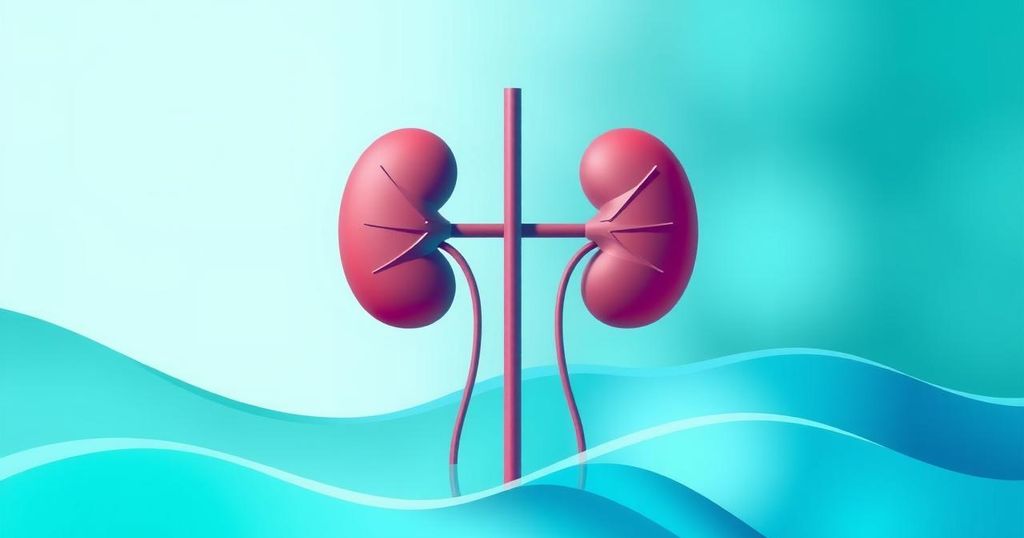Lifestyle
AFRICA, BAFFUO, ELLIOT KORANTENG TANNOR, GHANA, GOVERNMENT POLICY, HEALTH, HEALTHCARE, JOYCE, JOYCELYN KYEI - BAFFUOR, KWAME NKRUMAH UNIVERSITY OF SCIENCE, KWAME NKRUMAH UNIVERSITY OF SCIENCE AND TECHNOLOGY SCHOOL OF MEDICAL SCIENCES, LEADERSHIP, MENTAL HEALTH, PUBLIC HEALTH
Sofia Rodriguez
0 Comments
Chronic Kidney Disease in Ghana: Treatment Challenges and Prevention Strategies
Chronic kidney disease rates are increasing in Ghana, especially among the youth, exacerbating health concerns due to high treatment costs, particularly dialysis. Experts identify diabetes and hypertension as leading causes of CKD, urging the public to adopt healthier lifestyles and reduce salt intake. Despite previous efforts for subsidized dialysis, recent financial constraints have halted crucial programs, underscoring the need for government intervention and public health campaigns to address these challenges.
Chronic kidney disease (CKD), characterized by the gradual decline in kidney function, has become a significant health issue globally, including in Ghana. Recent publications indicate a concerning rise in CKD cases, particularly among the youth. The hefty financial burden associated with treatment, especially dialysis—an essential intervention for those with kidney failure—remains a critical challenge for many patients in Ghana.
Dr. Elliot Koranteng Tannor, a nephrologist and Senior Lecturer at the Kwame Nkrumah University of Science and Technology, cites two major factors driving this trend: diabetes and hypertension. According to Dr. Tannor, non-communicable diseases have emerged as the leading cause of mortality in the country, surpassing traditional infectious diseases, a trend that necessitates urgent public awareness and behavioral changes.
“It is very important that we realise now that what is killing us nowadays are not the infections anymore…the so-called non-communicable diseases are the major killers,” Dr. Tannor stated. He further emphasized the prevalence of hypertension, affecting approximately one in four adults over eighteen years, and called for a reduction in salt consumption to mitigate this serious health issue.
To foster healthier lifestyles, Dr. Tannor encouraged individuals to integrate exercise into their daily routines, stressing the importance of proactive health measures even in busy schedules. Additionally, he warned young people against the use of aphrodisiacs which can have detrimental effects on kidney health, stressing that they often consume unknown substances that may compromise their health.
The availability of subsidized dialysis in public hospitals frequently encounters demand pressures. In 2023, controversy arose when the Korle-Bu Teaching Hospital attempted to increase the cost of renal dialysis significantly, resulting in public backlash and subsequent reevaluation of the pricing.
A free dialysis treatment initiative was piloted in December 2024 as part of a government initiative, supported by the National Health Insurance Authority. However, financial constraints led to its suspension, leaving many patients without necessary support. The initiative was initially piloted across 40 health institutions, including the Korle-Bu Teaching Hospital, but funding challenges have put future sustenance in jeopardy.
The current Health Minister, Kwabena Mintah Akandoh, indicated the cessation of the free program due to the expiration of the National Health Insurance Formula meant to underwrite these costs, stating, “Beyond that date, there was absolutely nothing like free dialysis because there was no policy or source of funding.”
As Ghana marks World Kidney Day with the theme “Are your kidneys, ok?” it is imperative for the government to enhance kidney care through public education campaigns focused on risk factor reduction for hypertension and diabetes. Implementing effective screening programs can facilitate early detection and avert worsening health outcomes, while initiatives like ‘Mahama Cares’ can help address the rising burden of kidney disease effectively.
Chronic kidney disease poses significant challenges in Ghana, particularly regarding access to treatment options like dialysis, which often burdens patients financially. With rising rates of diabetes and hypertension contributing to worsening health outcomes, there is a pressing need for public health campaigns aimed at prevention. The government’s commitment to kidney care through initiatives and awareness programs is crucial in mitigating the impact of these conditions on the population, particularly on the youth. Ensuring access to affordable healthcare is imperative in the fight against chronic kidney disease in Ghana.
Original Source: www.ghanaweb.com




Post Comment